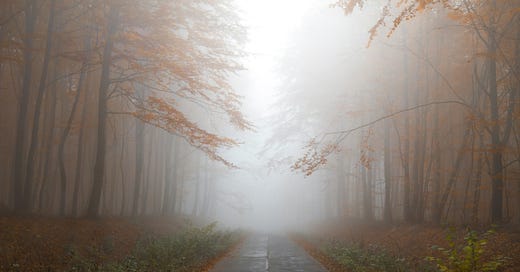We come to know ourselves better over time, or at least that is a possibility, based on whether or not we have chosen to invest some of our time in responding to the maxim Know Thyself. That well-known imperative is inscribed in the forecourt of the Temple of Apollo at Deplhi and was often cited by Socrates according to Plato and Xenophon.
According to Plato, in his Allegory of the Cave (Republic, Book VII), most of us are like prisoners living our lives staring at the wall of a cave, mistaking dimly lit shadows for reality. Knowing oneself, then, for Plato, is recognizing our mind and soul’s potential to understand the essence of faith, justice, love, goodness, hope and wisdom. This, we say, is better than the shadowy and transient illusions or imperfect copies of those perfect forms here in the physical world. Knowing ourselves is a matter of breaking our own chains of ignorance, freeing ourselves from the allegorical cave and crawling our way into the sunlight of genuine knowledge. As for Socrates, for Plato, the starting point is being self-reflective enough to recognize that our starting point is one of ignorance. What is sad is to see so many people not moving far beyond the starting line. I know that’s a judgment and it’s based on what I have observed about the ability of people to solve problems, think critically and contribute positively to the society where they live.
True wisdom is knowing what we do not know. So, an essential part of knowing ourselves must be recognizing the limits of our own wisdom and understanding—knowing what we know, knowing that we don’t know what we don’t know and knowing what we have yet to learn. There is knowing, there is understanding and finally there is appreciating. (Gratitude!) Knowledge by itself is rather useless unless that knowledge has specific meaning to us, and perhaps to others as well. Understanding the meaning of knowledge can move us to do something to act on the knowledge to make a contribution to the world in which we find ourselves. Our choices in the past have put us exactly where we are right now. Regardless how much knowledge you have, show me what you can do with what you know.
We go through many changes in the course of a lifetime, both because of our natural growth as individuals and because of the contingent, external events that shape our lives, thereby molding us into the individuals we are at any particular moment, and it’s a wonder that we have any semblance of self-knowledge at all.
Think of how we all began at birth, under very different circumstances due to parents, locations, culture, economics, health, history and so on. Those of us born prior to WWII came into a world vastly different from the world of television, computers and the internet that began somewhere around the 1950’s. Think of the rate and amount of change in the past 75 years as opposed the rate and amount of change in the 75 years between 1875-1950 although we endured, and sacrificed so much in those years with two world wars. There may be some lessons learned in the actions of giving so much and in hundreds of thousands of cases, a human life being the price paid to protect a way of life we have come to revere. I’m already working on the next draft, at least in my mind, about the generational differences I see and experience.
It is a wonder how we manage to navigate the complexities and complications that we encounter when we consider the number of systems which affect us, many without our conscious knowledge and awareness. The more aware we become, the better chances we have of understanding the mystery of us including our presence in a biodiverse eco-system. When we can explain why we value what we do and where and how we have changed over time, we are closer to understanding the mystery of us. When we consider which life decisions have affected us the most and why we are now on this path rather than another, different one, we will have come another step closer to understanding the mystery of us.
Knowledge, understanding, appreciation, and as a post script, the celebration of a life well-lived.
"Life Well Lived"
“A life well lived is a precious gift
Of hope and strength and grace,
From someone who has made our world
A brighter, better place
It’s filled with moments, sweet and sad
With smiles and sometimes tears,
With friendships formed and good times shared
And laughter through the years.
A life well lived is a legacy
Of joy and pride and pleasure,
A living, lasting memory
Our grateful hearts will treasure.”
- Author Unknown
And this, one of my favorite quotes from Etienne (Stephen) de Grellet, a Quaker missionary:
“I shall pass this way but once; any good that I can do or any kindness I can show to any human being; let me do it now. Let me not defer nor neglect it, for I shall not pass this way again.”




Thank you as always Gary. Reading your posts is often for me like a walk down a quiet lane, a chance to pause, a moment to consider life in a more generous way. I appreciate the steadiness of your considerations, and their depth. Blessings to you mate.
Your grace, kindness and understanding of humans is amazing - both the light and the dark, of our stubbornness and our intelligence.
May we aspire to bettering and understanding ourselves so that we might have a life well lived.
Beautiful poem…brought me tears. Thank you for sharing it Gary.